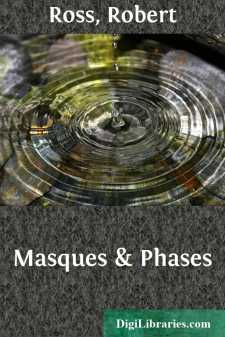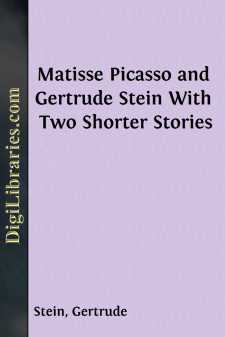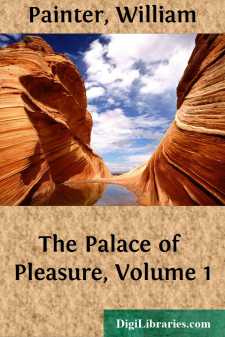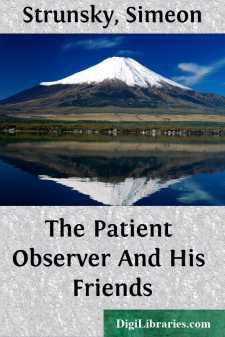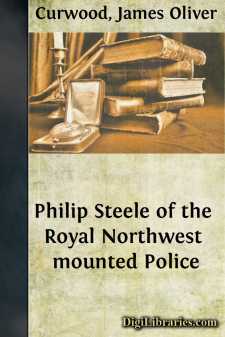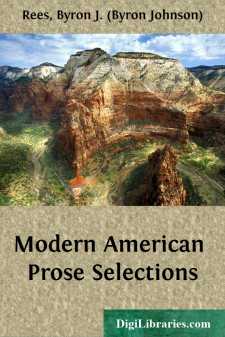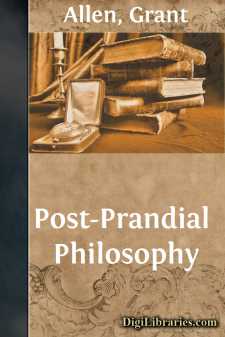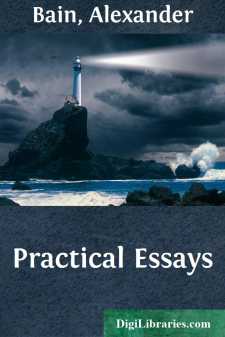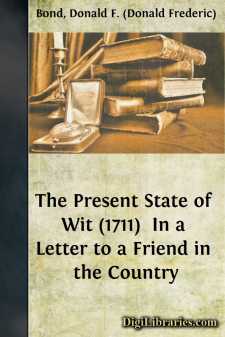Literary Collections
- American 84
- Ancient, Classical & Medieval 14
- Asian 1
- Australian & Oceanian 1
- Canadian 55
- Continental European 121
- English, Irish, Scottish, Welsh 179
- Essays 160
- General 24
- Letters 46
- Middle Eastern 1
Literary Collections Books
Sort by:
by:
Robert Ross
It is a common error to confuse the archæologist with the mere collector of ignoble trifles, equally pleased with an unusual postage stamp or a scarce example of an Italian primitive. Nor should the impertinent curiosity of local antiquaries, which sees in every disused chalk-pit traces of Roman civilisation, be compared with the rare predilection requisite for a nobler pursuit. The archæologist...
more...
by:
Gertrude Stein
When they are very little just only a baby you can never tell which one is to be a lady. There are some when they feel it inside them that it has been with them that there was once so very little of them, that they were a baby, helpless and no conscious feeling in them, that they knew nothing then when they were kissed and dandled and fixed by others who knew them when they could know nothing inside...
more...
by:
William Painter
INTRODUCTION. A young man, trained in the strictest sect of the Pharisees, is awakened one morning, and told that he has come into the absolute possession of a very great fortune in lands and wealth. The time may come when he may know himself and his powers more thoroughly, but never again, as on that morn, will he feel such an exultant sense of mastery over the world and his fortunes. That image seems...
more...
by:
Simeon Strunsky
COWARDS It was Harrington who brought forward the topic that men take up in their most cheerful moments. I mean, of course, the subject of death. Harrington quoted a great scientist as saying that death is the one great fear that, consciously or not, always hovers over us. But the five men who were at table with Harrington that night immediately and sharply disagreed with him. Harding was the first to...
more...
Chapter I. The Hyacinth Letter Philip Steele's pencil drove steadily over the paper, as if the mere writing of a letter he might never mail in some way lessened the loneliness. The wind is blowing a furious gale outside. From off the lake come volleys of sleet, like shot from guns, and all the wild demons of this black night in the wilderness seem bent on tearing apart the huge end-locked logs...
more...
PREFACE As the reader, if he wishes, may discover without undue delay, the little volume of modern prose selections that he has before him is the result of no ambitious or pretentious design. It is not a collection of the best things that have lately been known and thought in the American world; it is not an anthology in which "all our best authors" are represented by striking or celebrated...
more...
Introduction My aim in this little book has been to give short sketches and estimates of the greatest modern English writers from Macaulay to Stevenson and Kipling. Omissions there are, but my effort has been to give the most characteristic writers a place and to try to stimulate the reader's interest in the man behind the book as well as in the best works of each author. Too much space is devoted...
more...
by:
Grant Allen
THE STRUGGLE FOR LIFE AMONG LANGUAGES. A distinguished Positivist friend of mine, who is in most matters a practical man of the world, astonished me greatly the other day at Venice, by the grave remark that Italian was destined to be the language of the future. I found on inquiry he had inherited the notion direct from Auguste Comte, who justified it on the purely sentimental and unpractical ground...
more...
by:
Alexander Bain
I. On the prevailing errors on the mind, proposed to be considered in this paper, some relate to the Feelings, others to the Will. In regard to Mind as a whole, there are still to be found among us some remnants of a mistake, once universally prevalent and deeply rooted, namely, the opinion that mind is not only a different fact from body—which is true, and a vital and fundamental truth —but is to...
more...
INTRODUCTION Gay's concern in his survey of The Present State of Wit is with the productions of wit which were circulating among the coffee-houses of 1711, specifically the large numbers of periodical essays which were perhaps the most distinctive kind of "wit" produced in the "four last years" of Queen Anne's reign. His little pamphlet makes no pretence at an analysis of true...
more...


